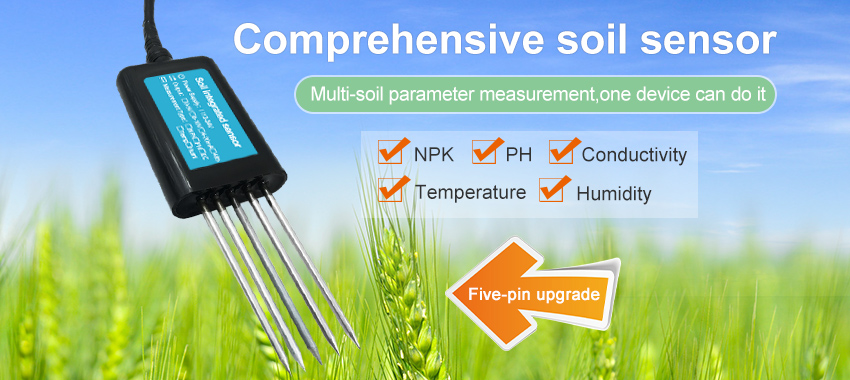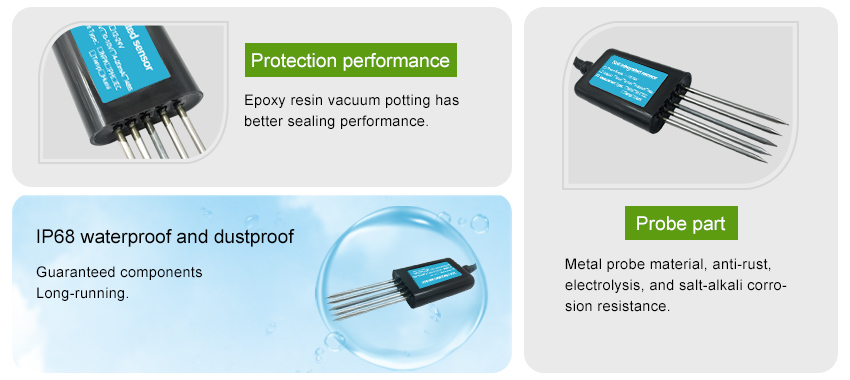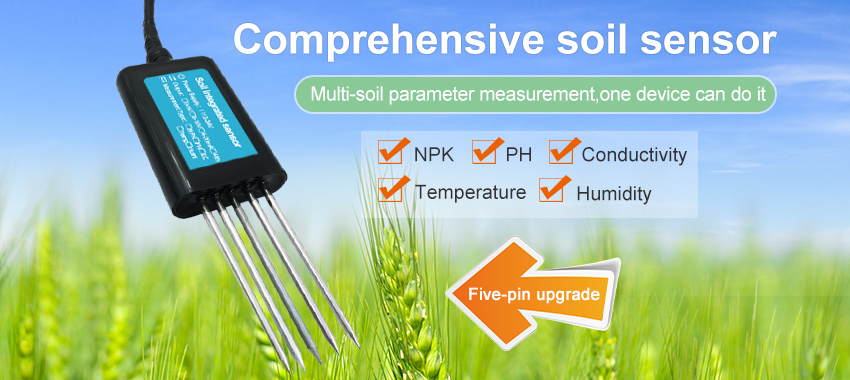Precision agriculture is transforming the agricultural industry by leveraging advanced technologies to optimize farming practices. Among these technologies, soil sensing systems play a pivotal role in providing accurate and real-time data on soil conditions. This article explores how precision agriculture is revolutionizing farming through the application of soil sensing systems.
Real-Time Monitoring of Soil Conditions:
Soil sensing systems enable farmers to monitor soil parameters such as moisture content, temperature, pH level, and nutrient concentrations in real-time. This continuous monitoring provides comprehensive insights into the health and condition of the soil, enabling farmers to make informed decisions regarding irrigation, fertilization, and other agronomic practices. By understanding the dynamic nature of soil conditions, farmers can implement timely interventions to optimize crop growth and maximize yield.

Precision Irrigation:
Water scarcity is a significant concern in agriculture. Precision irrigation, made possible by soil sensing systems, allows targeted water application based on crop needs. By continuously measuring soil moisture levels, these systems provide precise information for irrigation scheduling and optimization. Farmers can deliver the right amount of water at the right time, avoiding over- or under-irrigation. This not only conserves water resources but also enhances water-use efficiency, reduces energy consumption, and improves crop productivity.
Efficient Nutrient Management:
Proper nutrient management is crucial for crop growth and development. Soil sensing systems support efficient nutrient management by providing real-time data on nutrient levels and availability in the soil. By analyzing this data, farmers can apply fertilizers more precisely, based on the specific needs of their crops. The result is reduced fertilizer usage, minimized nutrient runoff, and improved nutrient use efficiency. This not only benefits crop productivity but also protects the environment by preventing pollution of water sources.

Detection and Management of Soil Variability:
Soil conditions can vary significantly within a field, impacting crop performance. Soil sensing systems help identify such variability, enabling farmers to implement site-specific management strategies. By mapping soil properties such as texture, organic matter content, and compaction, these systems provide valuable data for precision agriculture practices. Farmers can then tailor their management practices, such as planting density, fertilizer application rates, and tillage operations, to address the specific needs of different areas within the field. This targeted approach maximizes resource utilization and improves overall crop performance.
Disease and Pest Control:
Early detection and management of diseases and pests are critical for crop protection. Soil sensing systems can detect changes in soil conditions that may indicate the presence of diseases or pests. For example, variations in soil moisture or nutrient levels can provide insights into potential disease outbreaks or pest infestations. By regularly monitoring soil conditions, farmers can take proactive measures such as adjusting irrigation schedules, applying appropriate pesticides, or implementing crop rotation strategies to mitigate the impact of diseases and pests, leading to improved crop health and reduced yield losses.
Advancing Sustainability:
Precision agriculture, facilitated by soil sensing systems, promotes sustainable farming practices. By enabling precise resource management, such as water and fertilizer applications, these systems minimize waste and environmental impacts. Precision irrigation reduces water consumption, conserves energy, and prevents waterlogging issues. Optimized nutrient management reduces nutrient runoff, minimizing pollution in nearby water bodies. Moreover, by identifying soil variability, farmers can implement conservation practices like cover cropping and precision tillage, preserving soil health, and reducing erosion risks.
Conclusion:
Precision agriculture, driven by soil sensing systems, revolutionizes farming practices by providing real-time data and insights into soil conditions. From precision irrigation and efficient nutrient management to disease control and sustainable farming, these systems optimize resource utilization, enhance productivity, and reduce environmental impacts. As technology continues to advance, the integration of soil sensing systems into precision agriculture will play a crucial role in meeting global challenges like food security and sustainable development. By adopting precision agriculture principles and leveraging soil sensing systems, farmers can maximize yields, minimize inputs, and contribute to a more sustainable and resilient agricultural future.







